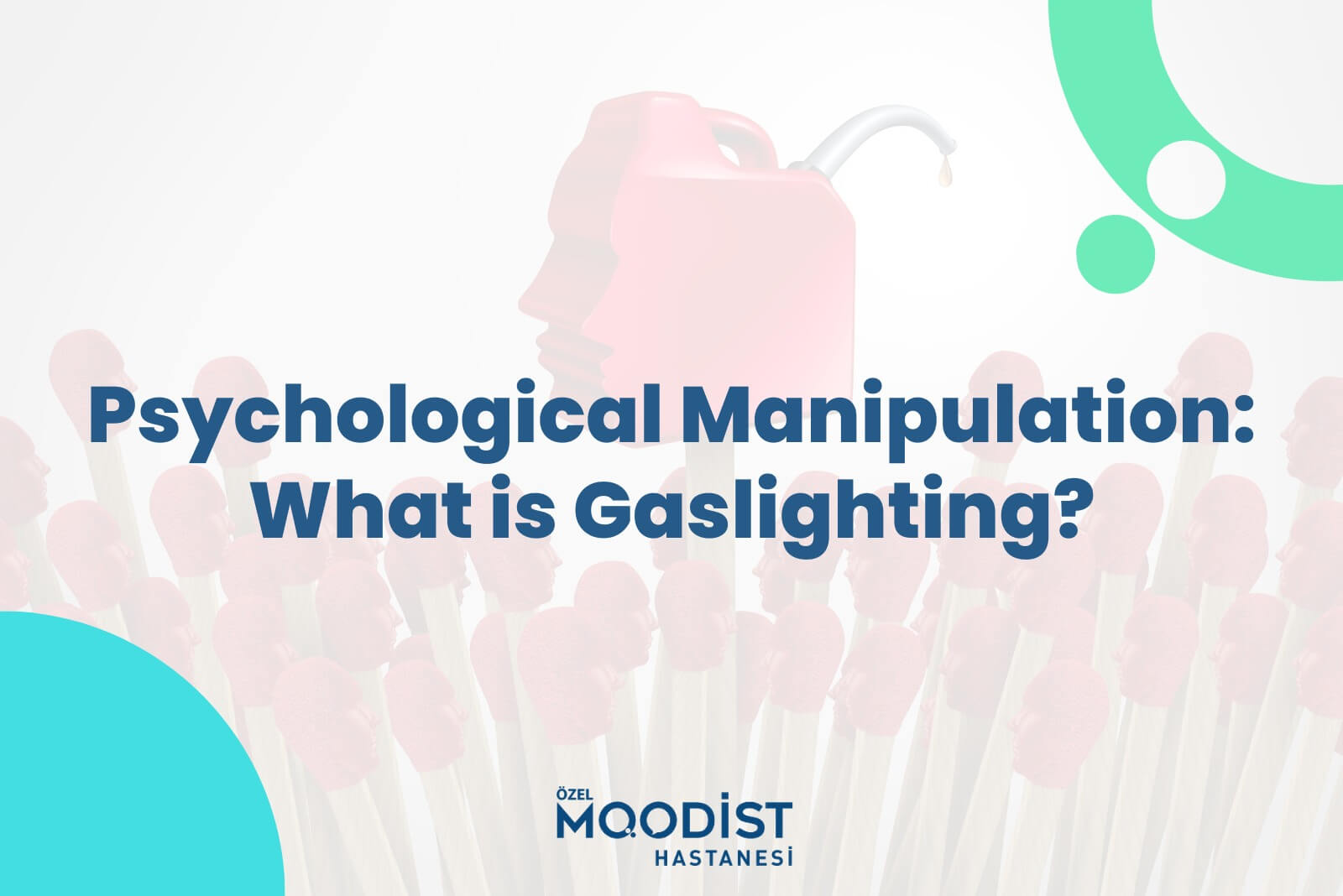
Psychological Manipulation: What is Gaslighting?
The term ‘Gaslighting’ originates from a theater play. In the play ‘Gas Light’ put on the stage in 1938, Jack dims the light of a gas lamp every night, and his wife Bella tells her husband that the light illuminates less and less every day, but Jack refuses this fact and blames his wife of dreaming and says that she is mentally ill. Bella begins to doubt herself and to question her own reality and what she sees.
Gaslighting is basically a psychological manipulation technique. In this type of manipulation, the victims question their memory, thoughts, mental health and perceptions due to the discourses and actions of the other party and seek a deficiency in their judgment and start to believe so after a while. Because there is someone who always criticizes them, thinks they are wrong, makes them feel incomplete and highlights their flaws. It is highly easy for us to fall under the influence because we are often exposed to such manipulation by people we love and trust. Gaslighting is simply an effort to control the other party by making them feel humiliated, weak, guilty and self-doubtful for self benefit.
How Does Gaslighting Occur?
According to the literature, this psychological manipulation technique is applied in three different ways. In the first method, the manipulator creates a different narrative for the victim in the second or the third time. When the victim notices the difference, the manipulator tries to manipulate the victim’s perceptions by saying that the victim remembers it incorrectly and is not in their right mind. The second method is physical. The gaslighter changes the location of an item in the house, puts it somewhere else, and then takes it back to its original location. When the victim says that he/she could not see the item in its original location and then the item is returned to its original location, the manipulator states that the item has always been there and the problem arises from the victim’s perception, allowing the person to doubt himself/herself. The third method is that the manipulator, who deliberately skips the details of an event, talks to the victim as if he/she already mentioned these details and blames the victim for not remembering them since there is a problem in the victim’s memory.
However, the term ‘gaslighting’ is currently used to express the problematic emotional aspects of relationships. Establishing dominance by one party over the other, making the other party feel bad, constantly falsifying them, overlooking their feelings and being the sole owner of the relationship are evaluated under this definition.
The person who is constantly made to feel emotionally deficient, wrong and problematic becomes unable to use their own will and conscious after some time and continues their life with complete surrender, whereby the gaslighter takes the entire control and makes all decisions. In fact, the objective of the gaslighter is to take control of the personality and life of the other party and manipulate it as he/she pleases.
What are the Causes of Gaslighting?
We often see that these people have narcissistic personality disorder. Those with narcissistic personality disorder consider themselves to be sublime, single, and very important. Thus, they always want to control, be considered important, be the center of attention and valued in their environment and in the relationships they establish. They do everything in their power to make the other person dependent on them. The feelings, thoughts and desires of the victim are not important for the narcissist. The key is to control and shape the thoughts and actions of the other party, to make him/her dependent by isolating him/her from his/her circle. Although gaslighter narcissist regard themselves as very powerful and valuable, they actually have a fragile self and self-confidence. They try to manipulate and keep the other party under control in order to cover up and compensate for this vulnerability.
How Does One Know If They Are Exposed to Gaslighting?
If you are constantly confused about your relationship and often ask yourself, “Was I wrong, am I making a mistake?”, you are blamed for all arguments you have, you feel constantly deficient, you are the one who apologizes, your feelings are overlooked, you stay on the right side to avoid quarrels, you are too tired to defend yourself even when you are right, you have no hope for the future of the relationship, your partner hurts you, shouts at or insults you and says “you are to be blamed for this or are responsible for this”, you may be exposed to Gaslighting.
The Most Frequently Used Phrases in Gaslighting
It is necessary to review the sentences frequently used when Gashlighting rather than the example. If you hear these sentences frequently, you need to reconsider your relationship: “This has never happened, don’t make it up! I don’t agree, it’s your own fantasies. I didn’t tell you that, you’re dreaming. That’s a complete lie. You’re making this up. Everyone says you’re a liar. You’re exaggerating. We’ve never experienced that! I didn’t say that to you. You know how much I love you. I would never hurt you! You are very precious to me, I said those words in anger!
What Should The Person Do in The Face of This Situation?
It is necessary to note that it may not always be easy to notice that you are exposed to Gaslighting since the manipulator who applies it will act highly professionally. As soon as you notice this drawback, clearly express the areas you feel uncomfortable and the cause of this discomfort. And then warn the gaslighter properly and draw your own line to avoid any recurrence. If the other party continues to do so, please end your relationship with that person because the gaslighter is not in a healthy mood. You are not the person who can professionally support and treat this person. If you start doing this, you will end up in the same place and may even be exposed to greater damage.
